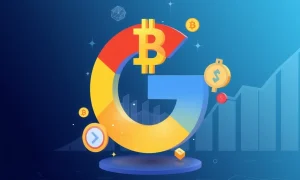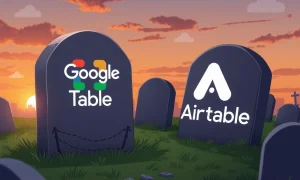The CEO of America’s largest digital publisher has launched a stunning accusation against Google, labeling the tech giant a ‘bad actor’ for allegedly stealing content to fuel its AI ambitions. Neil Vogel of People, Inc. reveals how Google’s practices threaten publisher revenues in the AI era.
Google Bad Actor Accusation Rocks Publishing Industry
Neil Vogel, CEO of People, Inc., delivered a powerful indictment against Google at the Fortune Brainstorm Tech conference. He accused the company of operating as a Google bad actor by using identical web crawlers for both search indexing and AI content scraping. This dual-purpose approach, according to Vogel, allows Google to unfairly compete with content creators while maintaining control over web traffic.
The Crawler Controversy Exposed
Vogel detailed the core issue: Google employs the same crawling technology for search results and AI training. This creates an impossible dilemma for publishers. Blocking AI crawlers would also remove them from search results, devastating traffic. The CEO provided startling statistics showing Google’s traffic share dropping from 90% to just 20-30% in recent years.
- Single crawler system serves both search and AI purposes
- Traffic dependency prevents publishers from blocking access
- Revenue impact affects content creation sustainability
Publisher Leverage in the AI Economy
Despite the challenges, Vogel emphasized his company’s success in growing audience and revenue. However, he stressed the fundamental unfairness of tech giants using publisher content to build competing AI products. The executive revealed that blocking non-paying AI crawlers through Cloudflare’s solutions has already prompted negotiation offers from major LLM providers.
Industry Leaders Support Google Bad Actor Claims
Janice Min, CEO of Ankler Media, echoed Vogel’s concerns, describing big tech companies as ‘content kleptomaniacs.’ Meanwhile, Cloudflare CEO Matthew Prince predicted significant changes within the next year, suggesting Google might eventually pay for content used in AI training. Prince also noted the complex copyright landscape surrounding AI derivatives.
Legal and Regulatory Implications
The controversy highlights growing tension between content creators and AI companies. Current copyright laws, designed before the AI era, struggle to address content scraping issues. Recent settlements, such as Anthropic’s $1.5 billion agreement with book publishers, indicate the industry is moving toward compensation models.
Future Outlook for Content Compensation
Industry experts predict that pressure from publishers and potential regulations will force AI companies to establish fair content licensing agreements. Vogel’s strategy of selectively blocking crawlers while maintaining search visibility represents a new approach to negotiating power in the digital content ecosystem.
Frequently Asked Questions
What specific action makes Google a ‘bad actor’ according to publishers?
Publishers accuse Google of using the same web crawler for both search indexing and AI content scraping without separate compensation for AI training usage.
How has Google’s traffic contribution to publishers changed?
Google’s traffic share has dramatically decreased from approximately 90% several years ago to just 20-30% today, reducing publisher leverage.
What solutions are publishers using to protect their content?
Publishers are implementing crawler-blocking solutions from companies like Cloudflare to selectively prevent AI scraping while maintaining search visibility.
Are any AI companies currently paying for content?
Yes, some AI companies like OpenAI have established content licensing deals with publishers, while others are in negotiation phases.
What legal protections do publishers have against content scraping?
Copyright laws provide some protection, but the application to AI training content remains legally complex and untested in many jurisdictions.
How might this situation change in the future?
Industry experts predict that within a year, major AI companies including Google may establish formal content licensing agreements with publishers.






